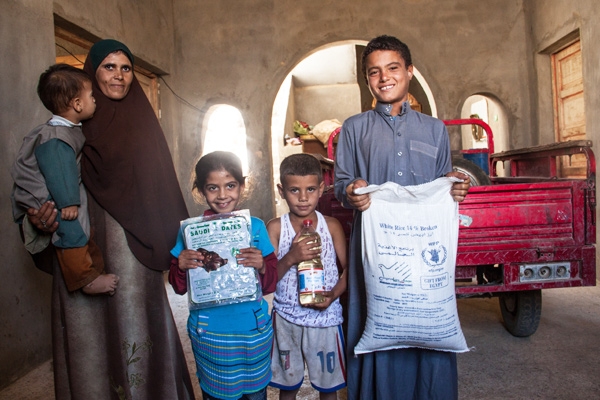More than 8.8 million children in Egypt have never attended primary school. In an effort to boost attendance at school and to encourage parents and their children not to leave school at an early age, the World Food Programme has been providing children across the country with healthy food. The catch? Children must ensure that their attendance exceeds 80 percent. Reaching out to children in Fayoum Working in eight of Egypt’s most vulnerable governorates, WFP provides 216,000 children with daily snacks at school in the form of fortified date bars and take-home rations. One of the governorates targetted by the school feeding programme is Fayoum, located about 100 km southwest of Cairo. Fayoum is ranked the lowest of Egypt’s governorates on the Human Development Index. WFP supports all community schools in Fayoum. A school with just one classroom A young girl stands proudly in front of her one-classroom school in Fayoum governorate. One-classroom schools are community schools consisting of a single room structure in a sparsely populated, rural and remote area. These schools offer classes to pupils of different ages at the primary education level, with a special focus on girls….




